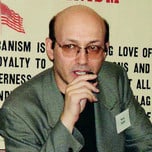Norm Zadeh received his Ph.D. in Operations Research, a branch of applied mathematics, at 22. He authored the book Winning Poker Systems in 1974. Dr. Zadeh was a three-time AADSS NBA pro-basketball handicapping champion, a successful hedge fund manager, and publisher of the magazine Perfect 10. He has taught as a professor at Stanford, Columbia, UCLA, and U.C. Irvine.
How I Become a Hedge Fund Manager?
I went to U.C. Berkeley as an undergraduate. I initially had a double major in mathematics and computer science. Because the computer science instructors were relatively incompetent at that time, they made the courses so difficult and unpleasant that I ended up dropping the computer science major, which was a huge mistake in retrospect. My excuse at the time was, “they know everything there is to know about computer science, so I may as well stick to math.”
At some point, I realized that pure math was not for me. It was too impractical, the professors made it unnecessarily hard to understand, and I ran into a fellow named Peter Montgomery, a William Lowell Putnam top-five finisher, who was so much brighter than I was that I realized I needed to search for less competitive pastures.
Ironically, Peter ended up flunking out of pure math because he didn’t know any. He was incredible at algebraic manipulations and basically recreated theorems on the fly as he was solving problems. But that wasn’t enough.
I looked around for a field that was both practical and less competitive. I found a perfect one, Operations Research. Operations Research deals with super practical problems, like how to provide the army with sufficient nutrition at minimum cost or how-to guide a rocket to the moon. Pioneers in Operations Research solved both those problems. The diet problem was the basis for linear programming, largely created by George Dantzig, who I had the pleasure and honor to meet when I taught in the Stanford Operations Research department in 1989-1990. The rocket guidance problem was largely solved using dynamic programming techniques created by Richard Bellman, a close friend of my father, Lotfi Zadeh.
I accidentally skipped the seventh grade and then dropped out of high school due in part to the antisemitic flack that I encountered at Miramonte High School in Orinda, California. So I went to U.C. Berkeley at age 16. In my sophomore year, I began to take graduate math courses, and then when I decided to leave math, I took two graduate courses in Operations Research. I would attribute my success in applied math, to the extent there was any, to my policy of a) reading ahead of the class, b) finding simple books that I could understand, and c) looking at multiple examples to make sure I understood the material at hand before I moved on. So my strength was my comprehension, which I think is critical.
Early on in my senior year, I remember sitting in a graduate Operations Research course and overhearing some tense discussion about the comprehensive exam that was supposed to be administered that day. That exam was critical because it determined whether or not the student would be allowed to continue into the Ph.D. program. I asked the instructor, Ronald Wolff, whether or not I could take that exam. He said, “why not? You’ll probably pass it.” So I cracked open the two books I had with me at lunch, went in without basically studying at all, and got the highest score. That did not endear me to the students there and created other problems later, but it illustrates the value of developing a deep understanding of the material before you. I will repeatedly repeat that I do not view myself as smarter than others, but I made up for the lack of speed and memory with deep understanding and hard work.
To anyone uncertain about what field to go into, I would suggest either computer science or a money manager. Those are the fields that offer the greatest return per hour spent.
My first job offer was actually selling insurance because I did not support my thesis adviser, who I found out later systematically advised people not to hire me. The only reason I was ever able to teach anywhere (Stanford, UCLA, Columbia, and U.C. Irvine) was because of the support I had from Authur F. Veinott, Jr., the former chairman of the Stanford Operations research department. He had met me when I applied to Stanford for graduate school but later elected to stay at Berkeley. The contrast was so stark between the support I received from Stanford, when I did not even go there, vs. the anti-support I received from U.C. Berkeley, that when I later was asked to teach part-time at Stanford and had the opportunity to interact with those wonderful people, I ended up making multiple donations to Stanford to show my appreciation for their help and support.
